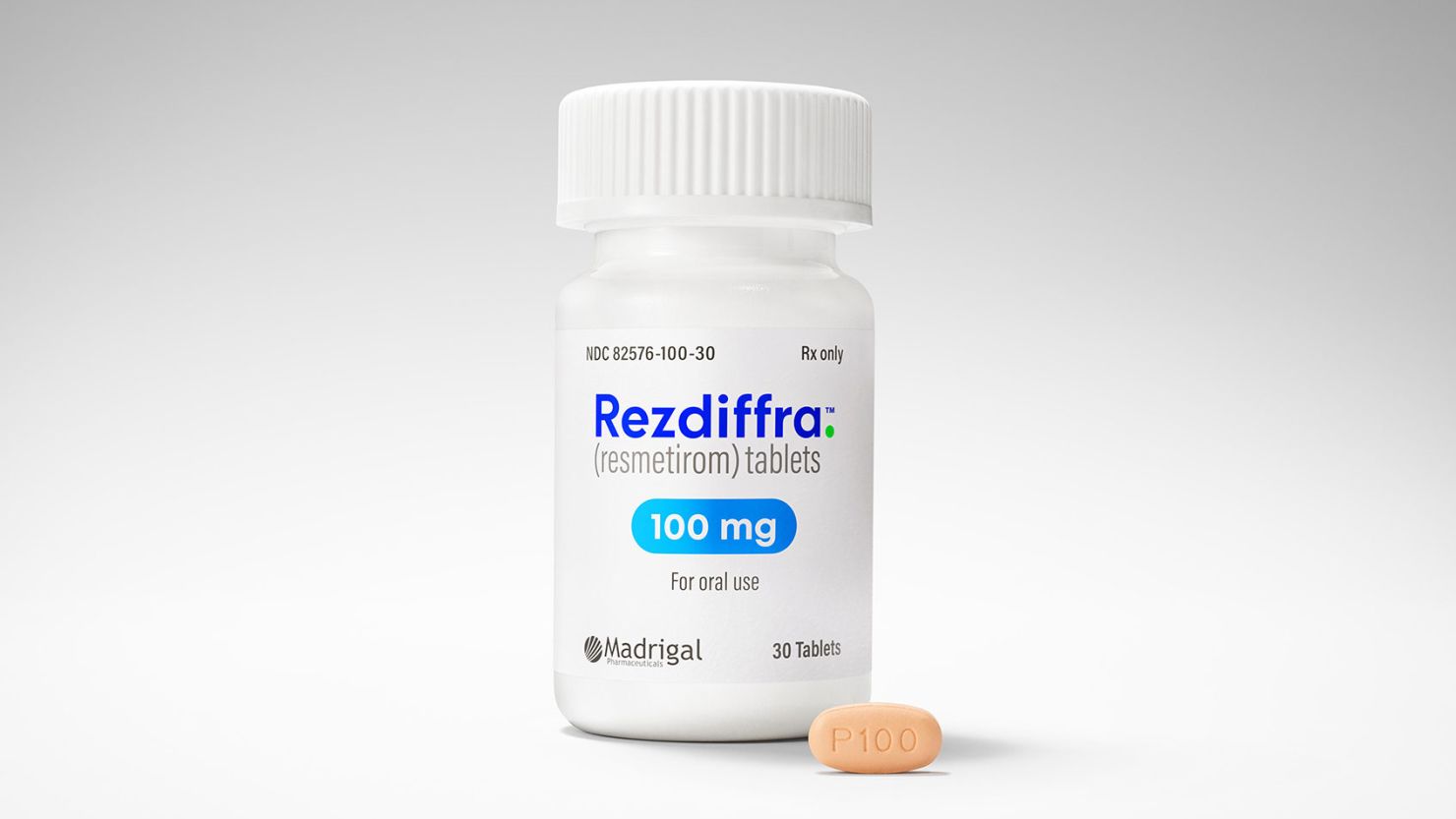The U.S. Food and Drug Administration (FDA) has approved the first medicine to treat a common liver disease known as nonalcoholic steatohepatitis, also called fatty liver disease.
NASH — also known as metabolic dysfunction–associated steatohepatitis (MASH) — is caused by a buildup of fat in the liver that typically occurs when people are overweight or have obesity.
NASH is an advanced form of nonalcoholic fatty liver disease (NAFLD). This condition develops when fat accumulates in the liver, causing inflammation and tissue damage over time that can lead to fibrosis. It can progress to cirrhosis, or very advanced disease that may only be treated with a liver transplant.
“Previously, patients with NASH who also have notable liver scarring did not have a medication that could directly address their liver damage,” said Nikolay Nikolov, MD, acting director of the Office of Immunology and Inflammation in the FDA’s Center for Drug Evaluation and Research, in the statement. “Today’s approval of Rezdiffra will, for the first time, provide a treatment option for these patients, in addition to diet and exercise.”
“Approval of resmetirom is an incredibly exciting development in the management of NASH, the most common liver disease in the world,” says Suzanne Sharpton, MD, an assistant professor and transplant hepatologist at Vanderbilt University Medical Center in Nashville, Tennessee.
“Drug development in NASH has been very challenging to date,” Dr. Sharpton adds. “This is the first treatment with effects on steatohepatitis as well as fibrosis — which is clinically meaningful, particularly as fibrosis stage is associated with [complications] in people with NASH.”
Where Does the New Drug Fit Into NASH Management Overall?
Initially, NASH may be managed with lifestyle modifications that can aid weight loss, such as a low-calorie diet or increased physical activity along with medications; reducing or eliminating alcohol consumption; and medications to manage other chronic health issues like type 2 diabetes or elevated cholesterol.
Resmetirom may help people who struggle to make effective lifestyle changes, Sharpton notes.
“Developing new treatments for NASH is imperative due to the limited effectiveness of existing medicines in halting or reversing the disease’s progression,” says Amir Ansaripour, PhD, PharmD, associate director of health economics and outcomes research at Optimax Access in the United Kingdom, who has studied resmetirom.
“Pharmacologic treatments are sorely needed, as there is no other FDA-approved pharmacologic therapy,” Sharpton says. “Our current management focus is on lifestyle modification including diet and exercise with an overall goal to lose weight, which is challenging to achieve and sustain for many patients.”
Resmetirom Showed Impressive Trial Results for NASH
“Effectively, resmetirom may not only prevent the progression but also reverse the fibrosis,” says Jean-François Dufour, MD, a researcher at the Centre Digestive for Diseases in Lausanne, Switzerland, who wasn’t involved in this study but has researched NASH and resmetirom.
Diarrhea and nausea were more common with resmetirom than with the placebo, although the frequency of serious side effects was low and similar across the three intervention groups.
“Resmetiron is safe and reduces liver fibrosis — it’s the only one that does this,” says Mary Rinella, MD, a professor and transplant hepatologist at the Pritzker School of Medicine at the University of Chicago, who was a coauthor on the study.
Because of this, doctors may start to screen patients at high risk for NASH and fibrosis sooner so they can try to halt the progression of fibrosis before people have severe and irreversible liver damage, Dr. Ansaripour says.
“The availability of resmetirom as a treatment for NASH has the potential to significantly change treatment guidelines and the overall approach to managing the disease,” Ansaripour says.
“Resmetirom could trigger revisions in guidelines, encouraging primary care screening for NASH in high-risk patients and potentially changing the timing and progression of fibrosis treatment,” Ansaripour adds. “This could lead to a proactive shift towards preventing disease progression, emphasizing early intervention, and promoting collaboration among healthcare providers for a multidisciplinary approach.”



